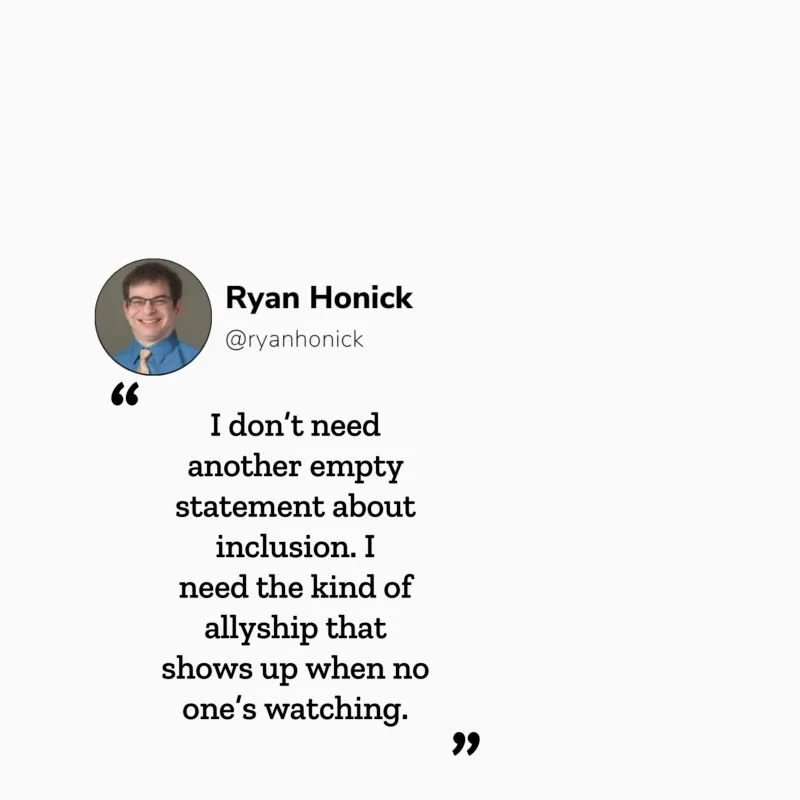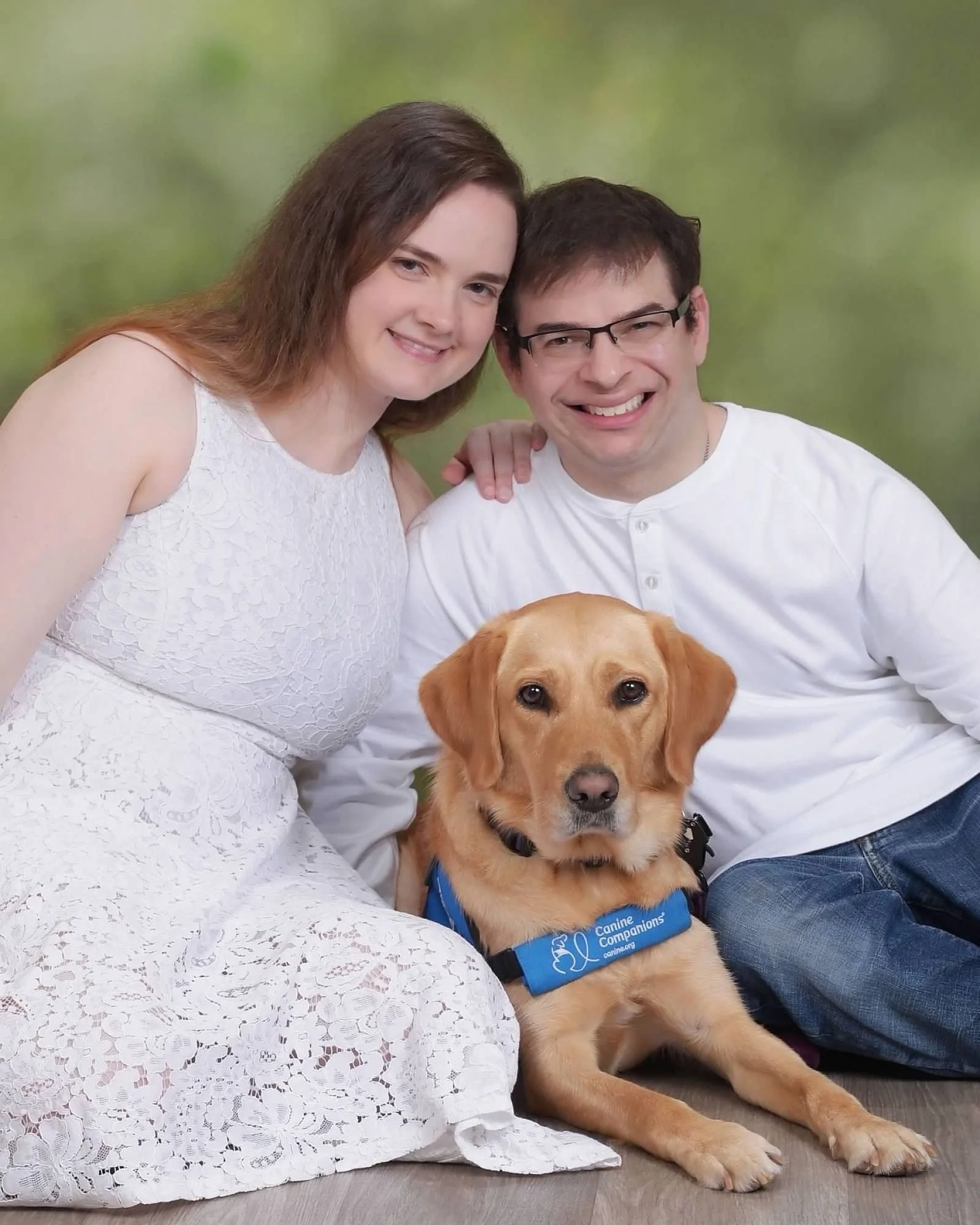Quote graphic with a photo of Ryan Honick and the text: “I don’t need another empty statement about inclusion. I need the kind of allyship that shows up when no one’s watching.”
Earlier this month, I went to the first-ever WAWABILITY event at The Anthem. It was joyful. Messy in the best way. Loud. Hilarious. Real. And even with a modest turnout, it mattered—a lot.
Credit to Warren "Wawa" Snipe, the visionary behind it. The guy brought his full heart, his artistry, and his community. I hope it continues. I really do. This city needs more of it.
But then I looked over at the sponsor display—and there it was: Uber. One of about a dozen logos backing the event.
And I just sat with that for a minute.
Yes, that Uber.
The same company that’s denied me rides because of Canine Companions® Lovey. The same one that’s been sued (repeatedly) for discrimination. The same one that looked the other way after I was left on the curb.
But sure. Throw some money at a Disability Pride event. Put your name on a banner. Snap a photo for the DEI newsletter.
That’s what performative allyship looks like. And disabled folks? We know it when we see it. We’ve had to get really good at reading the fine print behind the smiling statements.
It’s the employer who posts about Disability Employment Awareness Month, but makes you jump through three layers of HR just to get a basic accommodation.
It’s the airline that says your safety is “top priority”—while treating your wheelchair like oversized luggage.
It’s the landlord who says $5,000 for a power door opener is “too much,” even though the company manages a billion-dollar portfolio.
You start to realize: it’s not that they don’t have the resources. It’s that they don’t see us as worth spending them on.
That takes a toll. Not just professionally. Not just logistically. But emotionally.
Because every time we advocate, we’re calculating the cost. Will this change anything? Will they retaliate? Will they suddenly see me differently?
Spoiler: they often do.
I’ve watched the shift.
I’ve felt it.
I’ve disclosed a disability and watched my standing change—without my performance changing at all. And if you push back? Suddenly you’re the problem. You’re “too sensitive.” You’re “hard to work with.” You’re imagining it. We’re not imagining it. We’re just tired of proving it.
So let’s be real: I don’t need another empty statement about inclusion. I need the kind of allyship that shows up when no one’s watching. I need people who are willing to be angry with us—not just empathetic. I need the 80%—the non-disabled folks in rooms we’re not in—to stop whispering support and start saying something out loud.
Because we see the gap between your message and your actions. And we’re done pretending we don’t.
Have you ever felt that shift—celebrated one day, sidelined the next?
If you’ve disclosed a disability at work, what changed afterward?
And for the allies: when was the last time you said something—not just felt bad about it?









